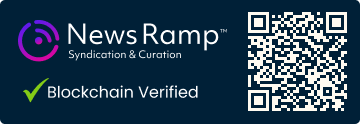Quest Diagnostics and Mainz Biomed Partner to Advance Colorectal Cancer Screening in the U.S.
December 20th, 2024 1:30 PM
By: Newsworthy Staff
Mainz Biomed and Quest Diagnostics have formed a strategic partnership to bring ColoAlert, an early colorectal cancer detection test, to the U.S. market. This collaboration aims to improve cancer screening accessibility and potentially save lives through early detection.

Mainz Biomed N.V. (NASDAQ: MYNZ) has taken a significant step towards introducing its innovative colorectal cancer screening test, ColoAlert®, to the United States market through a new partnership with Quest Diagnostics (NYSE: DGX). This collaboration marks a crucial development in the fight against one of the most prevalent forms of cancer worldwide.
Under the agreement, Quest Diagnostics will provide clinical trial and laboratory services for Mainz Biomed's ReconAAsense Food and Drug Administration (FDA) pivotal study of ColoAlert. The trial, set to commence next year, aims to enroll up to 15,000 patients. This large-scale study is designed to demonstrate the efficacy of ColoAlert in detecting colorectal cancer at early stages, potentially paving the way for FDA approval.
The significance of this partnership extends beyond the clinical trial. Quest Diagnostics has secured a semi-exclusive right to market ColoAlert in the U.S. for an eighteen-month period, should the product receive FDA approval. This arrangement could dramatically increase access to early colorectal cancer screening across multiple healthcare channels, including physicians, health systems, hospitals, and direct-to-consumer options.
ColoAlert's potential impact on public health cannot be overstated. Colorectal cancer is the third most common cancer globally, with over 1.9 million new cases reported in 2020. Early detection is crucial, as the five-year survival rate for colorectal cancer detected at an early stage is 90%. However, only about 40% of colorectal cancers are currently spotted early, highlighting the urgent need for improved screening methods.
Mainz Biomed reports that ColoAlert offers several advantages over existing screening methods. The test can detect both bleeding and non-bleeding tumors through DNA analysis, with a reported 85% detection rate for colorectal cancer cases, often in very early stages. Recent trials have shown sensitivities exceeding 90% for detecting colorectal cancer and over 80% for advanced adenomas, which are precursors to cancer.
The U.S. market represents a significant opportunity for ColoAlert. With an estimated 16.6 million colonoscopies performed annually and about one-third of U.S. residents aged 50-75 never having been screened for colon cancer, there is a substantial unmet need. Mainz Biomed estimates the total market opportunity in the U.S. at $4 billion.
This partnership between Mainz Biomed and Quest Diagnostics is part of a broader strategy to transform cancer prevention in the United States. It follows Mainz Biomed's recent alliance with Thermo Fisher Scientific, further strengthening the company's position in the diagnostic market. With $8 million in funding dedicated to expediting FDA approval, Mainz Biomed is poised to accelerate its progress towards bringing ColoAlert to the U.S. market.
The potential introduction of ColoAlert to the U.S. market could have far-reaching implications for public health. By providing a less invasive and more accessible screening option, it may increase screening rates and lead to earlier detection of colorectal cancer. This, in turn, could result in improved patient outcomes, reduced healthcare costs, and ultimately, lives saved.
As the clinical trial progresses and regulatory milestones approach, the healthcare industry will be watching closely. The success of ColoAlert in the U.S. market could not only benefit Mainz Biomed and Quest Diagnostics but also set a new standard for early cancer detection and prevention strategies worldwide.
Source Statement
This news article relied primarily on a press release disributed by News Direct. You can read the source press release here,
